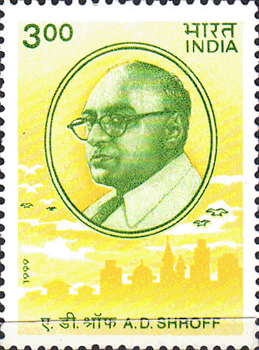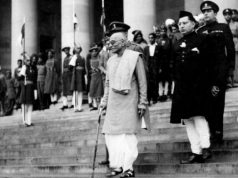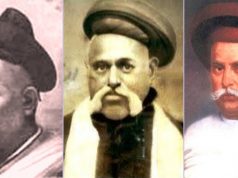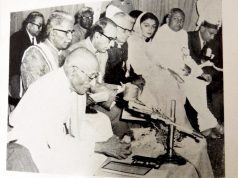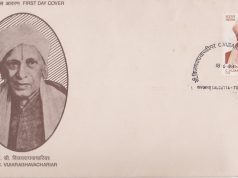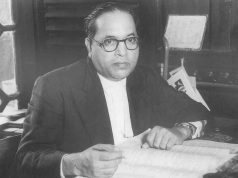In 1962, around the time of the time of the General Elections–there was considerable public interest regarding the place of private enterprise in politics. The Forum of Free Enterprise arranged a symposium to discuss these matters. The following speech was given by A D Shroff (1899-1965), President of Forum of Free Enterprise and a prominent economist, industrialist and liberal. Talks given in the symposium were later compiled in a publication–‘Private Enterprise and Politics’
There is an old story about the oldest profession in the world. The story goes that there was once an interesting discussion between a scientist, a lawyer and a politician. The scientist argued that his was the oldest profession because if the scientist had not been there, the secrets of nature would not have been found and life would have been very different indeed. The lawyer argued that his profession was older, as unless the lawyer had made laws and brought order to the world, there would have been chaos. And the politician argued that his profession must be the oldest as he was the one who creates chaos! As a matter of fact, this specialisation in creating chaos persists in politics so much, even today, that nobody else can claim that his profession is older than that of the politician. But, today, with the vast increase in the power of the state and the governments, everyone is concerned with politicians whatever the latter’s undesirable activity may be.
In the pre-Independence days, business men used to complain that the Government took very little interest in them. But today, their complaint is that, unfortunately, the Government takes too much interest in them. The necessity, therefore, arises for private industry or business in general, to have a look across to see if they could take some interest in politics too.
In the pre-Independence days, business men used to complain that the Government took very little interest in them. But today, their complaint is that, unfortunately, the Government takes too much interest in them. The necessity, therefore, arises for private industry or business in general, to have a look across to see if they could take some interest in politics too.
In the days of India’s great political struggle, the business men of India were coming forward and taking part in the political movement of the country. When I was the Vice-president of the Indian Merchants’ Chamber in Bombay, we used to be sent for and asked by the High Command of the Congress Party in those days to take a more active interest in politics, including taking out traders’ and merchants’ processions in the city of Bombay. As a young enthusiast, I took the risk in the Indian Merchants’ Chamber of sponsoring a resolution to boycott foreign goods. We were approached by the Commissioner of Police, for searching the records of the Indian Merchants’ Chamber for our antecedents in sponsoring a resolution for boycott of British goods.
Today, fortunately, things have changed. It is most heartening that on the eve of the recent general elections, a business man had the courage to express his opinion that there is need for bringing about an organised opposition in the country and, therefore, he would not only support the ruling party but also a new opposition party. It is said by some that the ruling party has confidence of the people and, therefore, the ruling party is the State. The State stands for everything and therefore, anybody who cares for the country should do nothing against the ruling party, it is further argued. This trend of thinking, of everything for the State, nothing outside the State and nothing against the State, constitutes a very serious and formidable risk to our democratic way of life. It was an idea propounded by Fascist Mussolini, and it is sad to see that it is being repeated in our country.
I know what moral cowardice the business men of India suffered from at the time I sponsored the Forum of Free Enterprise in 1956. This organisation has instilled courage into a few of the business men of India who today are emboldened to stand up and express their opinions. As a matter of fact, politics has raided business to such an extent that whether business men like it or not, they are dragged into politics. There is hardly a business problem where politics does not enter. For instance, if you are running a joint-stock company, before taking every action you have to think of the Company Law. This is but one of the severaI laws which concern business and industry. Legislation in this country has become so comprehensive and all-pervading that it entirely governs business. For instance, labour legislation is extremely desirable in its own way, but it has progressed at such a terrific pace that it has become difficult to carry on industries in a normal manner. The time has come for a realistic assessment of all I legislation affecting commerce and industry, and doing away with unnecessary laws. Otherwise, the economic growth of the country would be seriously affected, as most of the energies of the people in private enterprise are frustrated in seeking to meet the requirements of the laws.
Unless the business community in India is prepared to shed its moral cowardice and muster sufficient courage to exert itself freely and independently, it is not merely that private industry has very little chance of survival in the coming generation or two, but it will also allow by default the democratic way of life to perish. Free enterprise and democracy are so closely interlinked that free enterprise cannot be detached from democracy just as democracy cannot survive without free enterprise. Free Enterprise was born with man and will continue to survive as long as man lives.
To access the complete piece, click here. Visit indianliberals.in for more works by Indian Liberals dating back to the 19th Century.
Post Disclaimer
The opinions expressed in this essay are those of the authors. They do not purport to reflect the opinions or views of CCS.

